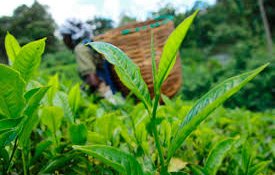Rwanda and Burundi’s tea industries are facing a steep downturn following a significant drop in prices at the Mombasa Tea Auction, one of the world’s largest platforms for black tea trading. The decline was triggered by Kenya’s suspension of a $2.43 per kilogram price floor, a measure originally introduced in 2022 to stabilize the market amid growing oversupply. With more than 100 million kilograms of unsold tea accumulating, auction prices have plummeted, and buyers have increasingly rejected large volumes, particularly from western Kenya and neighboring producers. This market turbulence has rippled across the region, hitting Rwanda and Burundi especially hard.
Known for producing high-quality teas that typically command premium prices, Rwanda and Burundi have found themselves caught in the crossfire of a saturated market and shifting buyer preferences. Despite their reputation for excellence, teas from both countries are now facing reduced demand and heightened competition, leading to lower earnings for farmers and exporters. The situation is compounded by logistical challenges, including delays in moving products and maintaining freshness, which further diminish the appeal of their exports. Some batches have also suffered from declining quality, making them less attractive to international buyers who are increasingly selective in a crowded marketplace.
Industry experts warn that without urgent reforms in production standards and marketing strategies, the region’s tea sector could face prolonged instability. The auction’s volatility has exposed structural weaknesses in the supply chain and underscored the need for more adaptive trading mechanisms that can respond to global demand fluctuations. For Rwanda and Burundi, where tea remains a vital export commodity and a key source of income for thousands of smallholder farmers, the current downturn poses a serious threat to livelihoods and foreign exchange earnings. The crisis has sparked calls for coordinated regional efforts to protect producers, improve quality control, and diversify market access.
As the global tea market continues to evolve, Rwanda and Burundi must navigate a complex landscape shaped by economic pressures, climate variability, and shifting consumer trends. The Mombasa auction’s price collapse serves as a wake-up call for the region’s tea industry, highlighting the urgency of innovation and resilience in the face of mounting challenges. Without strategic intervention, the promise of premium East African tea risks being overshadowed by the harsh realities of a volatile global market.
